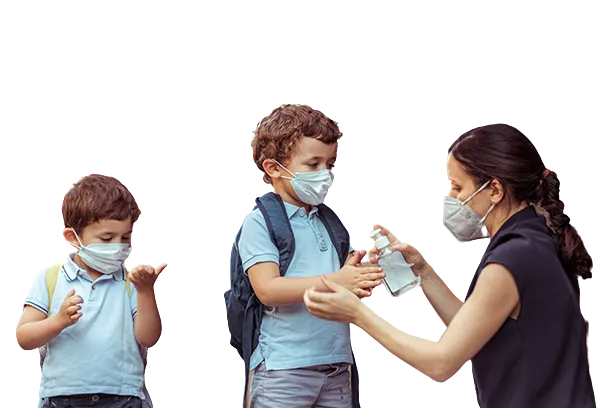
COVID-19 pandemic has made remote working, virtual learning and social distancing become part and parcel of everyone’s life.
Talking to children about the new norms, and teaching them to adjust to the current ways of functioning, therefore, becomes a necessity for every parent. Here are some quick tips to start the conversation:
Deal with your anxiety and fears first before talking with your kids. Keep things simple, provide age-appropriate information, and listen to their concerns. Even acknowledge that adjusting to these new changes is hard. However, be a good role model for kids in managing stress and anxiety. You may not know all the answers to your queries, so use this opportunity to learn together.
Explain to them why physical distancing between friends is necessary. Also, tell your children that you are not telling them to stop being friends with their pals. Instead, clarify that they can stay connected with their friends through virtual mediums. Children can get stressed in this environment. Inform them this phase in life is temporary, and help them to focus on these changes in a positive way. They will require your extra time and attention to understand the new situation.
Set a routine plan as a family. Take time to exercise with them and spend time outdoors together. Ask them to contribute ideas on how they want to spend an enjoyable time together. Ensure they get enough sleep, also involve them in preparing and eating healthy meals together. Train kids to learn relaxation and stress-management techniques, apps like Calm, Headspace, Breathe+ can help. Limit the use of social media and smartphones, balance it well to allow kids to stay connected with friends and loved ones virtually.
Train them to practice gratitude. Talk about things they should be thankful about. Also, encourage kids to figure out ways, through which they can help others that are in need at this time. As an example, let them clean their rooms and identify items for donation such as clothes that no longer fit or toys they do not use any more.
Note if your child or teen has any difficulty in day-to-day activities, trouble sleeping and eating, feels tired, worried, or withdrawn. These can be signs that your child is having significant difficulty in adjusting. Here you must seek professional help.
Patient Experience